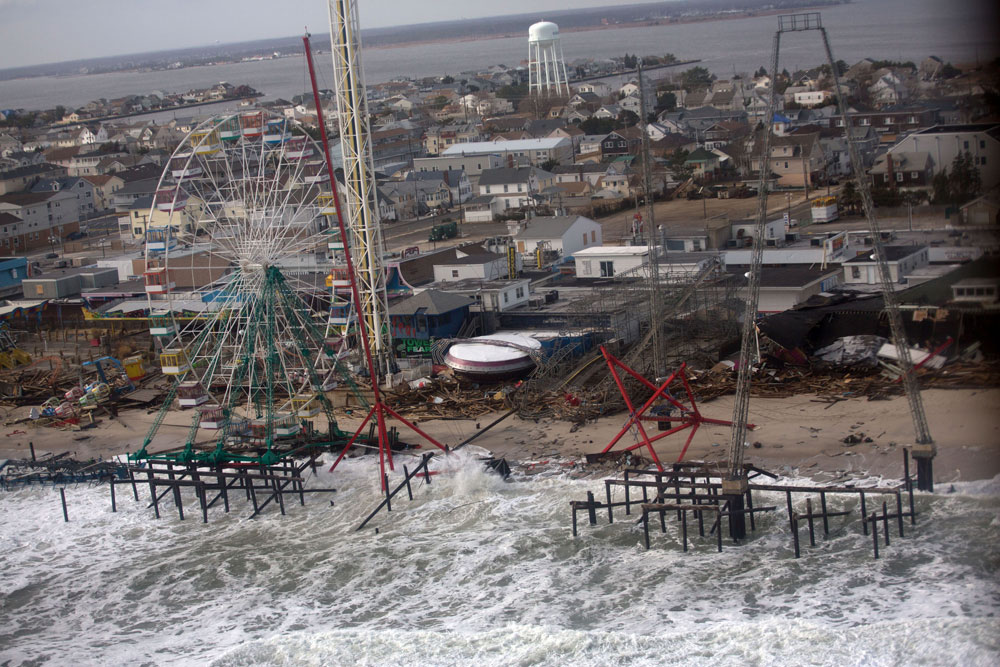
July 19, 2019; The Nation and Gothamist
The New York State legislature has passed an ambitious climate bill; it’s on its way to Governor Andrew Cuomo’s desk for his expected signature.
The president of the Natural Resources Defense Council (NRDC), Rhea Suh, called it “a historic achievement in our fight against the climate crisis.”
Thanks to the tireless activism, grit and determination of countless advocates and state leaders who heeded the urgency, New York is now in a league of its own on climate action. This bill will help fundamentally transform the state’s economy, slash climate pollution, and help create a more just and equitable society. There is no doubt that New York’s leadership sets the bar for the rest of the nation.
Advocates, activists, and engaged community members are accepting the credit for getting the bill approved. As New York Assembly Member Barbara Lifton indicated at the hearing in May, “We didn’t stop fracking in the back halls of Albany. We stopped fracking because 200,000 New Yorkers weighed in.” She added, “It takes a lot of people to change major government policy.” The most recent popular push to advance the watershed legislation came on June 11th, when hundreds formed a “die-in” outside the office of the governor.
The Climate Leadership and Community Protection Act (CCPA) is described by activists as a jobs, climate, and justice bill. Among its aims is reduction of greenhouse gas emissions all the way down to 1990 levels by 2050. Thousands of new jobs are to be created, and it mandates investment in energy efficiency and clean energy in “frontline” communities that will be affected first—and—worst by the climate crisis.
New York currently generates 23 percent of its electricity from renewables, mostly hydroelectric power. The new bill requires 70 percent of electrical power to come from renewable sources.
Sign up for our free newsletters
Subscribe to NPQ's newsletters to have our top stories delivered directly to your inbox.
By signing up, you agree to our privacy policy and terms of use, and to receive messages from NPQ and our partners.
Some have expressed disappointment in compromise changes. The initial investment rate in disadvantaged communities dropped from 40 percent of state climate funds to 35 percent with a goal of getting to 40 percent spending. Stephen Edel, project director for New York Working Families, notes that though the changes have been relatively minor from version to version, “they add up to weaken[ed] enforcement of the equity provisions central to a real climate justice approach and give Governor Cuomo even more power over implementation than the prior versions.”
However, Peter Iwanowicz, the executive director of Environmental Advocates of New York, said in an email to the Nation, “The core values of the CCPA remain intact.”
It has the best environmental justice provisions in the country and strong worker protections and wage standards. New York will finally have a law that does all this and moves the state’s entire economy off of fossil fuels by 2050 at the latest.
A form of the CCPA was first introduced in 2016 by Assembly member Steve Englebright. Despite constant support and pressure from NY Renews, a coalition of 170 environmental justice, labor, and community groups, it languished. The governor was late to the party, considering some of the standards too rigid. His version of the bill suggested a nine-member committee who answered to him. The approved CCPA has a 25-member council appointed by the legislature.
It has been observed that part of Governor Cuomo’s reluctance might be connected to his ties to the fossil fuel industry. His senior advisor discounts the suggestion. In an email to the Nation, Rich Azzopardi stated, “No governor has fought to protect our natural resources more than Governor Cuomo.”
According to Gothamist, “A new 22-member New York State Climate Action Council, comprised of the heads of state agencies and appointees from the legislature, will have two years to come up with a framework for how this will all be implemented, with the Department of Environmental Conservation and the New York State Energy Research and Development Authority executing the recommendations. Experts sitting on ‘advisory panels’ will help guide the council’s actions, including environmental justice and climate justice advisory groups.”
“This bill is really, really major,” said NY Renews communications coordinator, Arielle Swernoff, “It is the strongest climate bill in the country.”—Marian Conway













